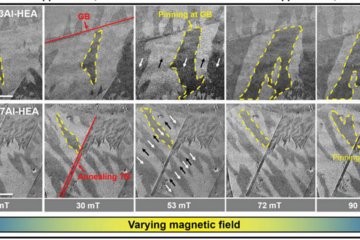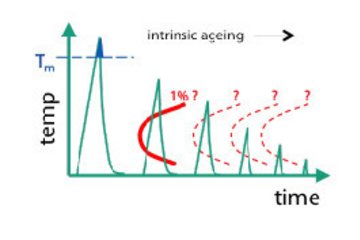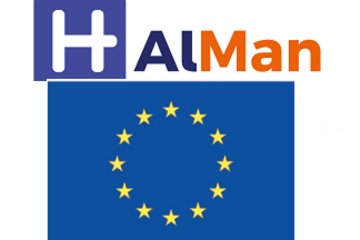All genres
41.
Talk
Strain-Induced Metal-Hydrogen Interactions across the First Transition Series – An Ab Initio Study of Hydrogen Embrittlement. TMS 2011 Meeting, San Diego, CA, USA (2011)
42.
Talk
Grain Boundary Kinetics in Molecular Dynamics: The Effect of the Driving Force on Mobility and Migration Mechanisms. TMS 2011, San Diego, CA, USA (2011)
43.
Talk
Understanding embrittlement in metals: A multiscale study of the Hydrogen enhanced local plasticity (HELP) mechanism. Bereichsseminar Materialforschung, MPI für Plasmaforschung, Garching, Germany (2011)
44.
Talk
Atomistic study of the Hydrogen enhanced local plasticity (HELP) mechanism. ADIS 2010, Mechanical Properties, Ringberg, Germany (2010)
45.
Talk
Ab initio based multi-scale approaches to the elasticity of polycrystals. ICAMS Scientific Retreat, Akademie Biggsee, Attendorn, Germany (2010)
46.
Talk
Atomistic study of martensite stability in dilute Fe-based solid solutions. PTM 2010 (Solid-Solid Phase Transformations in Inorganic Materials), Avignon, France (2010)
47.
Talk
Impurity ordering in iron: An ab initio based multi-scale approach. GraCoS Workshop (Carbon and Nitrogen in Steels: Measurement, Phase Transformations and Mechanical Properties), Rouen, France (2010)
48.
Talk
Multi-scale study of martensite stability in Fe-based solid solutions. DPG spring meeting, Regensburg, Germany (2010)
49.
Talk
Strain-induced metal-hydrogen interactions across the 1st transition series: An ab initio study of hydrogen embrittlement. DPG Frühjahrstagung 2010, Regensburg, Germany (2010)
50.
Talk
Atomic-scale quantification of solution hardening mechanisms. DPG Frühjahrstagung 2010, Regensburg, Germany (2010)
51.
Talk
Multi-scale study of martensite stability in Fe-based solid solutions. APS march meeting, Portland, OR, USA (2010)
52.
Talk
Strain-induced metal-hydrogen interactions across the 1st transition series: An ab initio study of hydrogen embrittlement. APS March Meeting 2010, Portland, OR, USA (2010)
53.
Talk
Multi-scale modeling of martensite formation in Fe-based solid solutions. 139th Annual Meeting of the Minerals, Metals and Materials Society (TMS), Seattle, WA, USA (2010)
54.
Talk
Embrittlement in metals: An atomistic study of the Hydrogen enhanced local plasticity (HELP) mechanism. 139th Annual Meeting of the Minerals, Metals and Materials Society (TMS), Seattle, WA, USA (2010)
55.
Talk
Computational study of interstitial ordering in bcc iron. Computational Materials Science on Complex Energy Landscapes Workshop, Imst, Austria (2010)
56.
Talk
Strain-induced metal-hydrogen interactions across the first transition series - An ab initio study of hydrogen embrittlement. Computational Materials Science on Complex Energy Landscapes Workshop, Imst, Austria (2010)
57.
Talk
An atomistic study of martensitic phases in dilute Fe-based solid solutions. MRS Fall Meeting, Boston, MA, USA (2009)
58.
Talk
Understanding embrittlement in metals: A multiscale study of the Hydrogen-enhanced local plasticity mechanism. Materials Research Society (MRS) Fall meeting, Boston, MA, USA (2009)
59.
Talk
Influence of long-range C–C elastic interactions on the structural stability of dilute Fe–C solid solutions. EUROMAT 2009, Glasgow, UK (2009)
60.
Talk
A multiscale study of the Hydrogen-enhanced local plasticity (HELP) mechanism. Euromat 2009, Glasgow, U.K. (2009)











